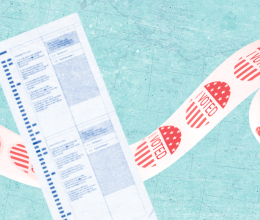Statement of League of Women Voters, Ohio A. Philip Randolph Institute, ACLU of Ohio, Demos, and Lawyers’ Committee for Civil Rights Under Law:
We are disappointed in the Court’s decision not to order changes to protect voters from disenfranchisement.
We remain deeply concerned that thousands of voters will be denied the vote, given how much must be done for Ohio to conduct a virtually all-mail election for the first time in a state where 85% of citizens traditionally vote in person on Election Day. Voters of color, low-income voters, voters with disabilities, and students are all disproportionately at risk.
Before the bill passed, both Secretary of State LaRose and county Elections Officials warned that April 28 was not a workable date. In our view, they were right then, and they’re still right.
The state pushed ahead anyway, defended its plan vigorously, and it assured the Court that Ohioans would be able to vote under these conditions. The Court relied on these representations.
We will be watching the execution of the April 28 primary closely. If Ohio’s process prevents people from voting, it will have denied its citizens’ fundamental rights. And the state will hear from us.
Come November, the state will absolutely need to be better prepared to make the general election free, fair, and accessible to all voters. The Court gave Ohio leeway here due to the highly unique circumstances surrounding the primary. The calculus will be very different for the general election.





